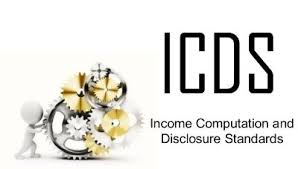The Government have recently notified 10 Income Computation and Disclosure Standards (ICDS). These ICDS are applicable from April 1st 2016 i.e. previous year 2016-17 (Assessment year 2017-18).
The recently introduced Standards will affect the compliance practice of all taxpayers following the mercantile system of accounting for computing income chargeable to income tax under the aforesaid heads of income:
1. Income from Profits and Gains of Business Profession, or;
2. Income from Other Source.
These standards are mandatorily to be followed by the assessee, who follows mercantile accounting system. This article will focus on these standards and rules and will explain the framework lay out by the same.
Main Features of Income Computation and Disclosure Standards
The taxpayers who follow mercantile accounting system are facilitated with numerous features, which are enumerated here below:
1. It provides clarity in presentation of Financial Statements.
2. It provide Accounting assumptions while adhering to such standards which are:-
a) Going Concern.
b) Consistency.
c) Accural.
3. Selection and alterations in accounting policies while adhering such computations and disclosures, should be effected as below:
1. Substance over form.
2. Marked to market loss or expected loss to be recognized as per prescribed standards.
3. Change in accounting policies only as per necessity.
4. Any accounting policies or change therein to be disclosed.
5. Wrong or inappropriate recording can be rectified.
6. Non following of accounting assumptions need to be disclosed.
4. These standards are applicable for normal computation and not for MAT (Minimum Alternate Tax) computation.
Highlights on Notified ICDSs
A draft of 14 Tax Accounting System was first issued in August 2012. By the above notification, 10 ICDSs were finalized – excluding the standards on ‘Lease’ and ‘Intangible Assets’. Following ICDSs have been issued on March, 31st 2015, by CBDT:-
1. ICDS I relating to accounting policies.
2. ICDS II relating to valuation of inventories.
3. ICDS III relating to construction contracts.
4. ICDS IV relating to revenue recognition.
5. ICDS V relating to tangible fixed assets.
6. ICDS VI relating to the effects of changes in foreign exchange rates.
7. ICDS VII relating to government grants.
8. ICDS VIII relating to securities.
9. ICDS IX relating to borrowing costs.
10. ICDS X relating to provisions, contingent liabilities and contingent assets.
The introduction of ICDS will help to bring increased consistency in computation and reporting of taxable income, reduce litigation and minimize the alternative provided by the existing Accounting Standards issued by the Institute of Chartered Accountants of India.
Visit us at Taxmantra.com-ITR filing for support, query and feedback.

 Toll Free:
Toll Free:  Contact Us
Contact Us


